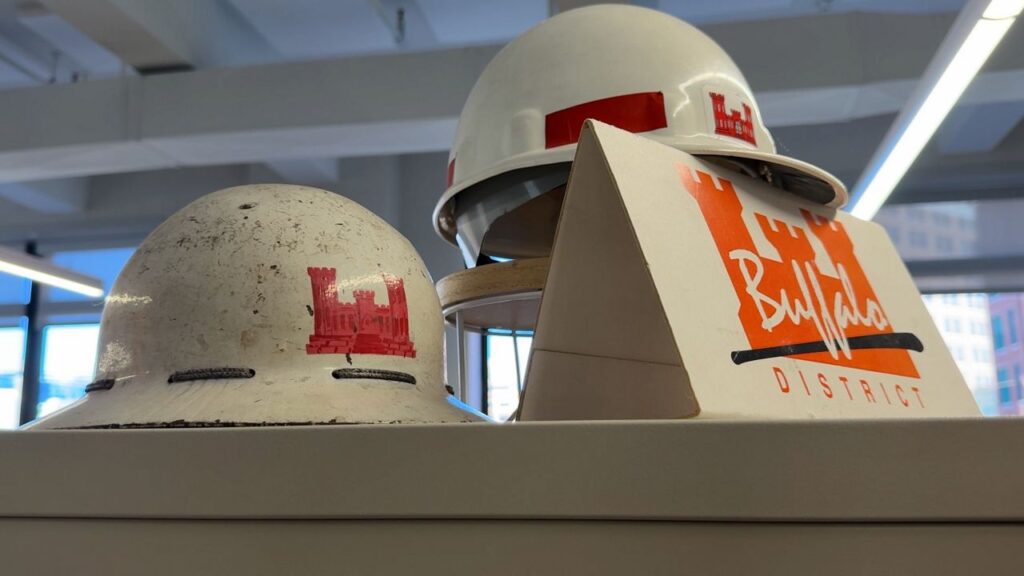BUFFALO, N.Y. — Finding a career that speaks to you can take time and you don’t always get it right the first time around. The Army Corps of Engineers is trying to make that process easier.
“This is the software that we use to develop our cost estimates,” said USACE cost engineer Jane Clark. “I could spend the rest of my life doing this.”
All the careers you can pick from aren’t always laid out in college courses. Clark knows that.
“Cost engineering sounds so dry and boring on its face. I was like, ‘What is that? Accounting,’” she joked.
When she got a position as an Army Corps of Engineers fellow, she was able to find out more about that job, and more.
“I have an outfit for every occasion here,” she noted, pointing out the variety of gear she wore at different work sites. “There was one day where I thought, ‘Man, I’m coming close to the end of this fellowship. And I still haven’t gone to go see the survey team.’ So, I called them up and they said, ‘What are you doing Thursday? Come on out here.’”
It led her to find a job she loves.
“Not too hot, not too cold. Just right,” Clark said.
The program is a point of pride for David Conboy.
“It takes the pressure off because job one is to figure out your place as an individual,” he noted. “And then how do you advance that? And what do you want to do in the future.”
Every cycle, they get three to five fellows for the paid position, who find their niche through experience.
“People graduate from college with an engineering degree, and that’s great, but they’re not exactly sure what elements of engineering they want to be a part of,” explained Conboy.
With massive projects, like cleaning up after the Manhattan Project to ensuring commerce on the Great Lakes, they can see where they fit in and how they’re being invested in for the future.
“As long as they stay employed and are productive public servants, then it’s a win for the army and for the nation,” Conboy said.
Clark graduated from the program in July. Now she’s working full-time, an opportunity she wouldn’t have without this experience.
“I learned more about working with them. I think I’m going to be a better teammate for them because I understand their language, their software, their team dynamics,” she said.
She wishes more employers would offer opportunities like this.
“I have so many different options for my future,” Clark said. “If I hadn’t been able to do this position, I just don’t know if I might have gotten stuck somewhere that I would have said, ‘You know what? This is good enough.’”
Because knowing your options makes a difference.
“I just get to wake up every day and be excited to come to work,” she said.
Clark notes that college isn’t just about homework and exams. It’s about building a career.
She encourages all students to make time to talk to people doing work they’re interested in, whether in a program like this or not. Ask someone to chat over coffee, join a professional organization, or whatever gets you more knowledge about the field.

